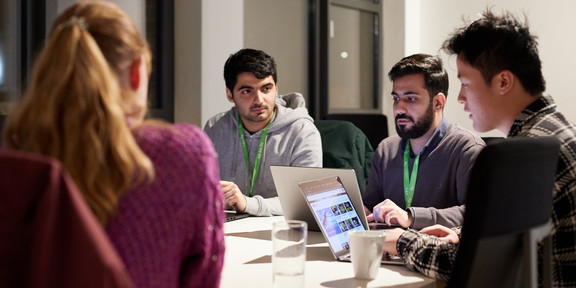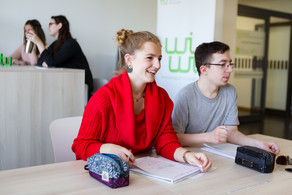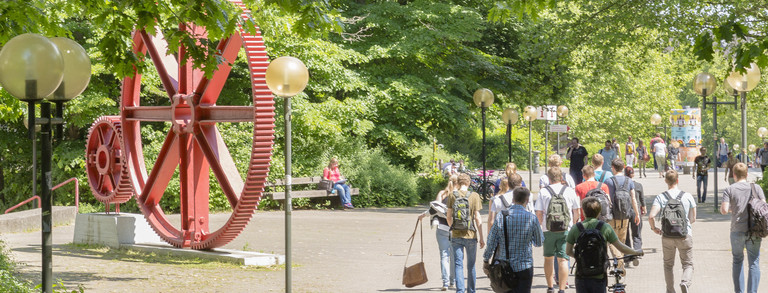Dortmund Hacks! - Successfully completed hackathon on the topic of innovation meets data protection

Our first hackathon of the Opt-IN project took place last weekend. The focus was on data protection-compliant solutions for smart homes and smart cities. Developers, creative minds, innovators and data experts came together to create exciting solutions for the future. Under the motto "Together we are shaping the future of our smart homes and smart cities!", the hackathon was a complete success.
Our experts Dr. Marcel Altendeitering, Olaf Schindler, Prof. Dr. Simon Hensellek and Alexander Rogalla kicked off the event:
- Dr. Marcel Altendeitering (Head of Department Mobility & Smart Cities) gave exciting insights into the main tasks of the Fraunhofer Institute, the support of the Opt-IN project as well as the use of data spaces and data streams between the participating companies.
- In his keynote speech, Olaf Schindler (CEO of VREEDA GmbH) emphasized the importance of data protection and innovative, smart technologies. He outlined the challenges of the hackathon and the need for innovative solutions.
- Prof. Dr. Simon Hensellek and Alexander Rogalla moderated the event and gave an inspiring outlook on the upcoming challenges.
Challenges from the idea to the functioning prototype
The participants worked in interdisciplinary teams on three challenging tasks:
- Use and business case challenge: developing use cases and business models that link smart lamps with mobility and energy consumption data.
- Gamified approach to resource conservation: promoting sustainable behaviour through personalized feedback on energy consumption data.
- Linking smart homes and smart cities: innovative ideas for solving specific urban challenges.
The teams impressed with their creative solutions, including FitGuard, which uses gentle visual cues (e.g. flashing or color change) from the smart VREEDA lamp to encourage movement when excessive inactivity or sedentary activity is detected. Concepts using artificial intelligence have also been developed, such as a smart mirror that uses emotion recognition to change the background color. Other examples include a service that rhythmically changes colors to match the selected music and a service that combines weather data with light. All teams successfully developed and programmed solutions and presented their results in a final pitch at the CET (Center for Entrepreneurship & Transfer).
They received valuable input and support from the Opt-IN project partners, which include the Technical University of Dortmund, the Fraunhofer Institute for Software and Systems Engineering (ISST), Logarithmo GmbH & Co KG, the CET and VREEDA GmbH.
Thanks to our partners and all those involved
We would like to thank all the keynote speakers for their inspiring contributions, as well as Fraunhofer ISST and CET for providing the venue. A big thank you also to Elmar Zeeb, who supported the teams with his technical expertise during the implementation. Special thanks also go to our jury, consisting of Ronald Kriedel (CET Managing Director), Daniel Pohl (Business Intelligence Manager of Van der Ven Dental GmbH & Co. KG) and Elmar Zeeb (CTO of VREEDA GmbH), who evaluated the pitches on Sunday and selected the winning teams.
Finally, we would like to thank all the participating teams. Your commitment, creativity and enthusiasm made this year's Opt-IN Hackathon "Dortmund hackt!" a great success. You were great!
More information about the project: https://opt-in.tu-dortmund.de/







